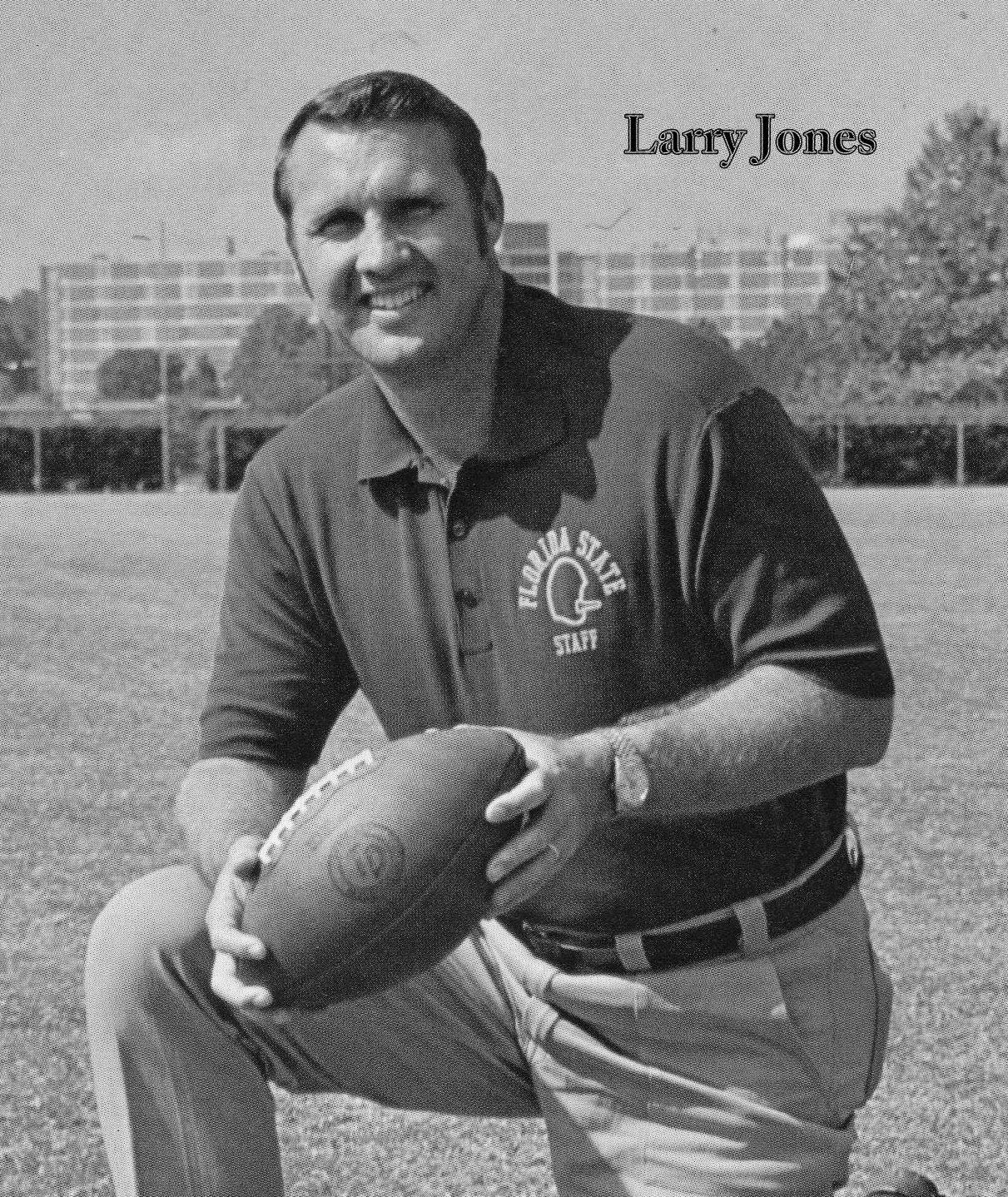
Larry Jones
Remembering the Larry Jones Era
By Jim Joanos
“It was the best of times, it was the worst of times…” Charles Dickens, A Tale of Two Cities
 |
Larry Jones |
Larry Jones, Florida State University’s head football coach for three seasons from 1971 through 1973 died in late May. His time at FSU was marked by some very happy times that changed into some rather gloomy ones.
During the Bill Peterson years (1960-70) as head coach, FSU had moved from a promising program to one that could win consistently against some of the better teams in the country. FSU had attained higher rankings than ever before. Consequently, when Peterson was offered and accepted a more lucrative coaching job at Rice University, FSU was able to find a suitable replacement with relative ease.
The selection committee located Larry Jones, the defensive coordinator at Tennessee, who bore a most impressive resume and what appeared to be a “can’t miss” future. Jones, a former outstanding center and linebacker at LSU, who had also spent three years as an air force officer, had been groomed well as an assistant football coach. Prior to his position at Tennessee, Jones had been on Paul Dietzel’s national championship staff at LSU in 1958 as well as with him at Army and South Carolina thereafter. Jones was appointed and FSU’s fan base was exceedingly happy.
Jones' first year as the Seminole head coach was a good one. The team won its first five games until losing a close 15-17 game at Florida. They then won three of the last five games and ended the regular season with a record of 8-3. As a result, FSU got an invitation to the first ever Fiesta Bowl in Tempe, Arizona, to play the hometown Arizona State Sun Devils who were ranked sixth in the country. The game turned out to be one of the most entertaining shootouts in bowl history. Neither team could stop the other. In the end, Arizona State scored last and won the game 45-38.
The 1972 season looked to be a very promising one. However, the previous year’s offensive coordinator, Steve Sloan, had moved on to another job in his coaching career. In addition, early in the preseason practices, FSU suffered several injuries. Despite the injuries, the season started out well with FSU winning its first four games of the season. But in the fifth game at home against Florida, that most promising season took a U turn when the Gators took charge midway through the game and handed the Seminoles their first loss of the season, a bad one 13-42. The Seminoles seemed to rebound somewhat with two wins, but then they lost three of the final four games of the season. Although the season record was 7-4, there was no bowl bid at the end of the season. What had been a very promising season had ended in disappointment.
The Spring of 1973 began the all-time low point of FSU football. More than two dozen scholarship players left the football team during the spring training period. Following the disappointing 7-4 season, Coach Jones had made the spring drills extremely difficult physically. Morale was already down because of the disappointing season. In addition, the U.S. was pulling out of Viet Nam after a number of divisive war years. There was a mood of unrest on college campuses around the country including FSU. A number of players decided football was not worth the effort.
In June a writer for the St. Petersburg Times wrote and published in that paper a scathing three-part series of articles criticizing FSU’s off-season training program. It became known as the “chicken wire scandal.” Chicken wire had been used in some of the criticized drills to keep players in a crouched position. The articles received wide-spread attention and while the writer acknowledged in the last of the series that FSU’s program was typical of a number of other ones around the country, FSU became singled out for what many believed to be “what was wrong with college football.” There were investigations and lots of turmoil. The result being that FSU entered the 1973 season with a depleted team and very, very low morale.
Florida State unexpectedly lost the opening game at Wake Forest, 7 - 9, and things continued to go downhill. FSU did not win a game, was blown out in several, and ended the season 0 and 11. Shortly after the season ended, Coach Jones was relieved of his duties at FSU.
This story does, however have a happy ending. As you all know, FSU football rebounded. The Seminoles, eventually, with Bobby Bowden at the helm, reached the highest pinnacles of college football winning a couple of national championships and competing for several more. It continues as a top tier program.
Larry Jones rebounded also. After FSU, he went back to the University of Tennessee as an assistant coach. Later he got into athletic administration. Eventually he went back to LSU and became the associate athletics director for a number of years. Twice during that time he served for periods as LSU’s interim athletic director. He spent the last 23 years of his life as a very successful fund raiser for LSU’s alumni organization. He is reported to have obtained over 35 million dollars in contributions for that university. He was quite popular in Baton Rouge and not long before his death was honored as LSU’s 2013 Alumnus of the Year. R.I.P., Larry Jones.